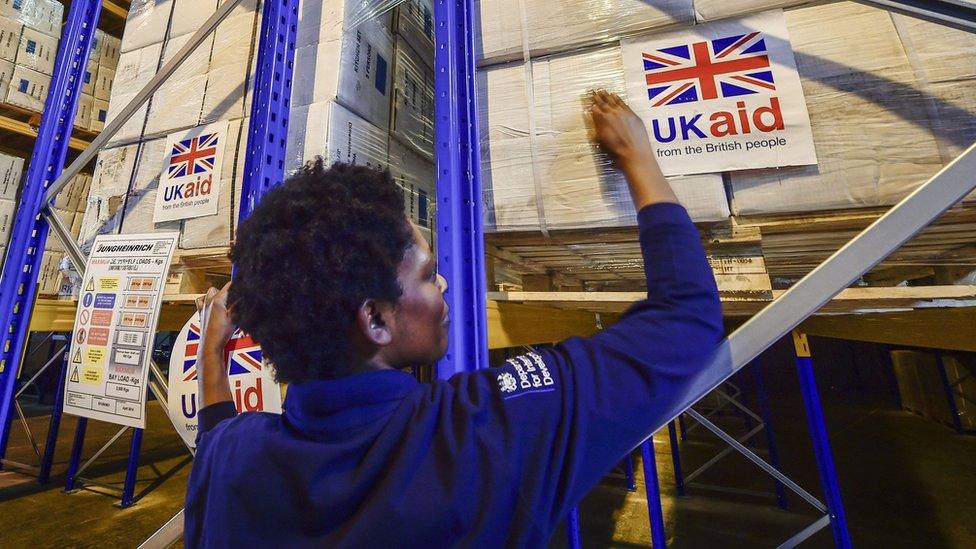Foreign aid: More Conservative rebels join bid to reverse cuts
- Published
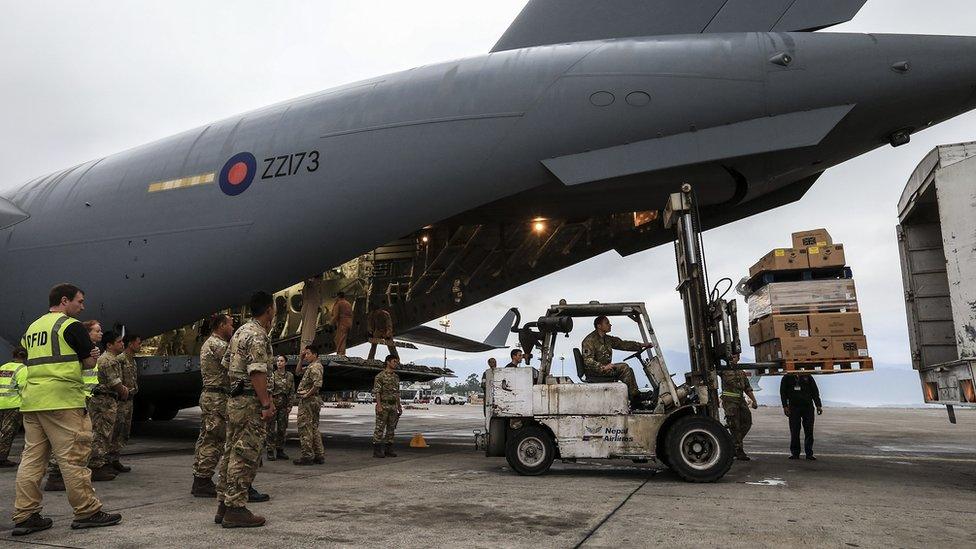
The government cut funding for the foreign aid budget from 0.7% to 0.5% of national income in November
The government is facing a growing rebellion that could force it to reverse cuts to foreign aid.
Thirty Tory rebels, including former prime minister Theresa May, have now promised to back a bid to increase aid spending in 2022.
Next week's planned Commons vote will come in the same week the government hosts world leaders at the G7 summit.
A minister said despite the "temporary" cut, the UK remained "one of the largest donors of aid in the world".
The rebels want to restore aid spending to 0.7% of national income from next January, after ministers reduced it to 0.5% this year, a cut of almost £4bn.
The group is hoping to use a technical procedure, involving an amendment to a new law setting up the UK's new "high risk" science agency, to bring about the change.
The aid reduction has meant millions of pounds less is being spent on supporting girls' education, reproductive health, clean water, HIV/AIDS, the humanitarian crisis in Yemen and Syria, and hundreds of other projects.
Charities warned that millions of women and children would not receive food and support and have predicted that more than 100,000 people could die as a result of the government's decision.
The United Nations Secretary General, Antonio Guterres, has described the aid cuts as a "death sentence".
Ambush
The reductions to the overseas development assistance budget were introduced by the government this year without a vote, in part because ministers feared defeat at the hands of MPs.
Initially ministers conceded the change would require a change to the 2015 law, passed during the Tory-Lib Dem coalition, which made the 0.7% target legally binding.
But in March, Boris Johnson argued a change, external would not be required because the current law allows the target to be temporarily missed in exceptional circumstances.
The government has promised to restore spending to the 0.7% level "when the fiscal situation allows" - but has not specified a date.
Critics have argued the decision to cut spending without changing current legislation is unlawful, and have been looking for an opportunity to test opinion in the Commons.
On Thursday, former Tory premier Theresa May, her former de facto deputy PM Damian Green, former Welsh secretary Stephen Crabb and former defence minister Johnny Mercer joined those supporting the rebellion.
It means there are now 30 Tory MPs supporting the amendment, including seven former cabinet ministers.
Former International Development Secretary Andrew Mitchell - who is leading the rebellion - said he was confident of finding the 45 or so Conservative rebels needed to defeat the government.
He said more Conservative MPs were coming forward to support the amendment to "stand by" the party's manifesto promise to spend 0.7% of national income on aid.
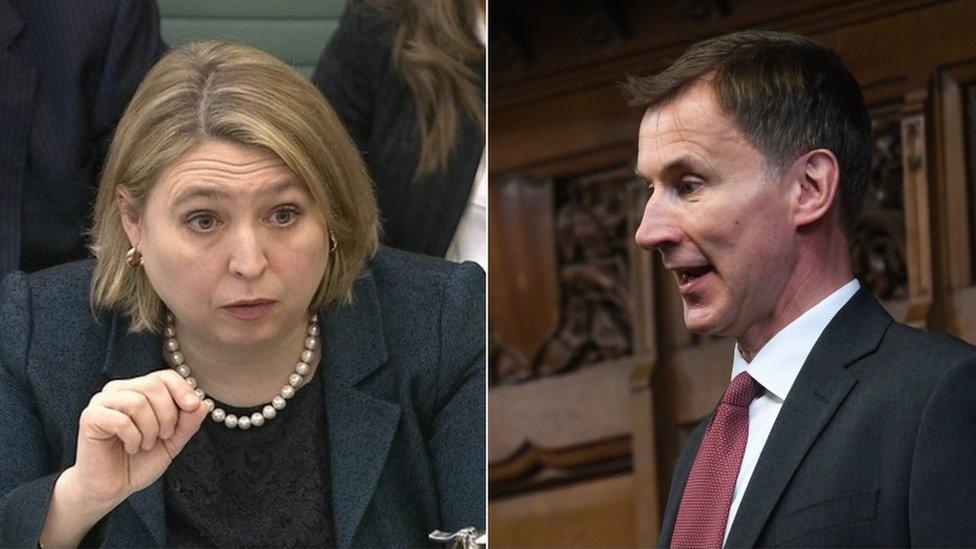
Karen Bradley and Jeremy Hunt are among the former Conservative ministers backing the vote
On Wednesday, Mr Mitchell tabled his amendment to the Advanced Research and Invention Agency Bill.
The bill, which would set up a new agency designed to come up with innovative policy, is due to receive detailed scrutiny in the Commons on Monday.
Mr Mitchell's technical amendment would oblige the new agency to make up any shortfall in aid spending if the government were to miss the 0.7% target.
Whitehall officials are studying whether the amendment is likely to be considered within the scope of the bill. It will be up to Commons Speaker Sir Lindsay Hoyle to decide on Monday whether it should be put to a vote.
'Very difficult decisions'
One of the Conservative rebels, Caroline Nokes, said the group had put "an awful lot of work" into designing their amendment, and she was "very hopeful" it would be selected.
But, speaking to BBC News, she added the group was "entirely in the hands of the Speaker at this point".
Labour's shadow international development secretary Preet Kaur Gill said the aid cut had "risked lives" during the pandemic and undermined the UK's credibility as a "leader on the greatest global challenges".
She urged ministers to "do the right thing" ahead of the G7 summit and reinstate the UK's commitment to spending 0.7% on foreign aid.
Responding to the move, Home Office Minister Victoria Atkins said the cut was a "small temporary reduction," and the UK still remained "one of the largest donors of aid in the world".
She told Sky News: "The prime minister has made clear that this is a temporary measure.
"In 2019, no one could have foreseen the extent of the pandemic and the measures we were going to have to take as a country in order to deal with this; it has had a huge impact on our economy."
"So we've had to make some very, very difficult decisions," she added.
"I do believe we still have a record of which we can very much hold our head up high in terms of international development."

THE MEANING BEHIND EMOJIS: The validation that comes with cultural recognition
LOVE IN LOCKDOWN: Stephen Fry narrates a new musical romance

Related topics
- Published18 May 2021
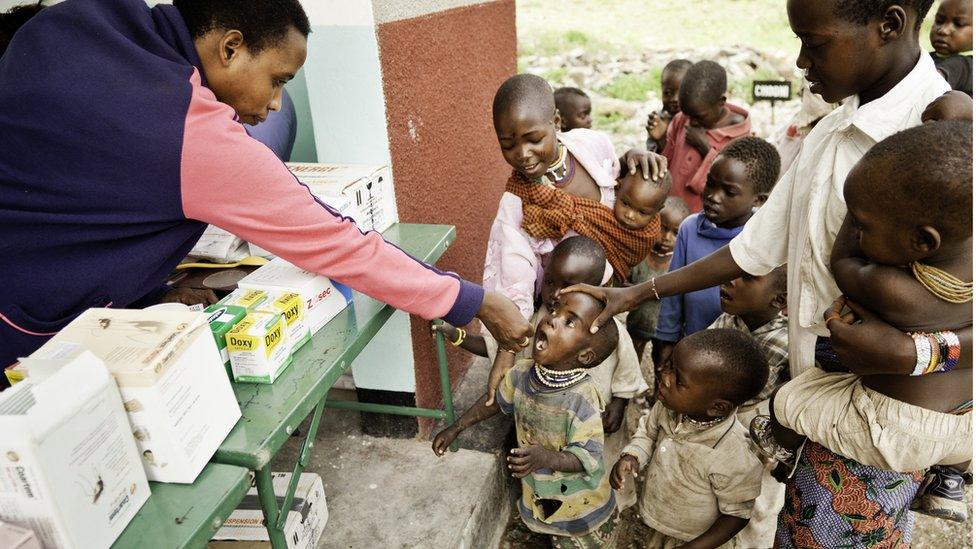
- Published21 April 2021
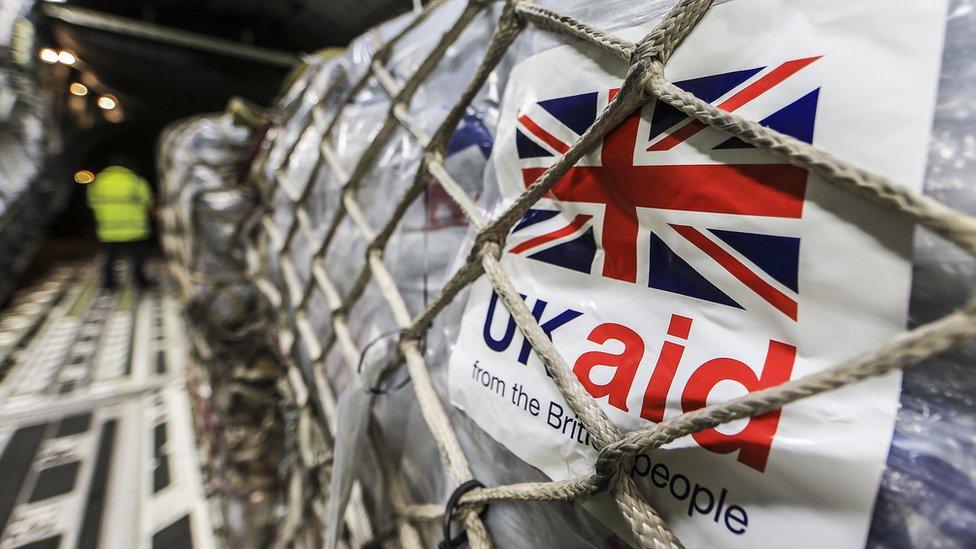
- Published25 November 2020
